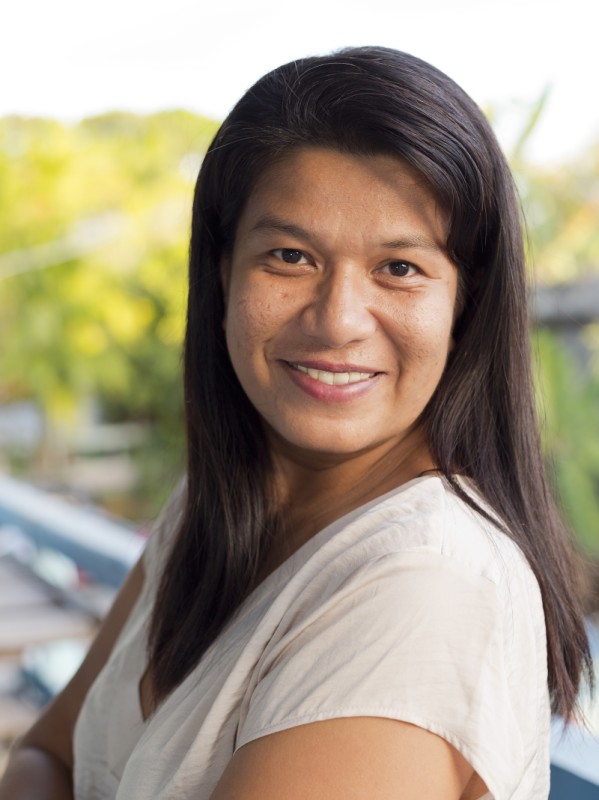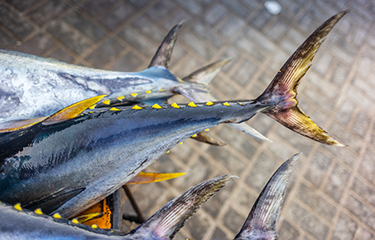The 27 members of the Western and Central Pacific Fisheries Commission (WCPFC) have approved the rollover of the tropical tuna measure for bigeye, skipjack, and yellowfin tuna, which without a consensus would have expired in February 2021.
The move by the WCPFC is in contrast with the Inter-American Tropical Tuna Commission (IATTC), which failed to reach a consensus on regulations, leaving the fishery unmanaged beginning 1 January, 2021. The renewal by the WCPFC is considered a victory, but the Pacific Islands Forum’s Fisheries Forum Agency (FFA) said much work remains left to be tackled at next year’s tuna commission.
“The top priority has always been that we needed to make sure that the commission has a tropical tuna measure for 2021, and I think the FFA team as a bloc, working together with Parties to the Nauru Agreement (PNA) as a bloc, managed to get the United States to pull back a bit on the horns and allow or accept the fact that this commission meeting is not the time to talk about new measures, and that we should be looking at 2021 to draft a new measure,” Forum Fisheries Committee Chair Eugene Pangelinan told reporters after the conclusion of the meeting.
The United States initially made several proposals prior to the WCPFC meeting, including an increase of the U.S. bigeye tuna quota by 3,000 metric tons (MT) to 6,554 MT. U.S. delegates also requested the removal of atwo-month fish-aggregating device (FAD) closure on the high seas and made a request to add 760 fishing days to its high-seas purse-seine effort limit. All of the U.S. motions were either rejected or tabled.
Pangelinan said the next WCPFC session will be a busy one, as several weighty proposals are in the pipeline.
“We have a lot of work to do so that by next December we have all the building blocks ready for WCPFC to make a decision, not just on the Tropical Tuna Measure, but also on South Pacific albacore, crewing conditions, and observers,” Pangelinan said.
Pangelinan it was challenging to negotiate on a virtual platform - a move necessited by the COVID-19 pandemic - but said he expects all discussions and workshops to be done virtually until it is safe to meet in person.
Over the next year, WCPFC will host three workshops to develop the replacement tropical tuna measure, with the first one scheduled in April 2021.
After the continuance of the tropical tuna measures were announced, NGOs welcomed the news.
“The rollover of the tropical tuna measure has averted a crisis like the one that transpired at the Inter-American Tropical Tuna Commission’s annual meeting more than a week ago," The Pew Charitable Trusts said in a statement. "These annual negotiations demonstrate that a modernized approach is urgently needed."
Glen Holmes, an officer for Pew’s international fisheries, said the tropical tuna measure renewal provides basic safeguards for fisheries in the Western and Central Pacific Ocean estimated to be worth USD 19 billion (EUR 15.6 billion).
“This decision adds to pressure on the Inter-American Tropical Tuna Commission to adopt a management measure for eastern Pacific tropical tunas at its special session next week,” Holmes said. “Just over a week ago, IATTC failed to agree to a critical management measure, leaving these fisheries in a huge area of ocean completely unregulated. Although WCPFC’s action is important, the entire Pacific deserves – and needs – comprehensive rules for tuna fishing.”
The IATTC has since scheduled an emergency meeting for 22 December in a push to extend conservation and management measures for tropical tunas within its jurisdiction through 2021.
Holmes said while the WCPFC is to be applauded for its work amid COVID-19, there was little progress made toward precautionary, science-based harvest strategies.
“And while WCPFC should be commended for not reaching a stalemate, the time-consuming nature of annual negotiations and the massive costs if consensus is not reached highlight the urgent need for a predictable, stable approach to management,” Holmes said.
Holmes said if a harvest strategy had already been in place, quota-setting could have been automated, leaving more time for managers to discuss improvements to safeguard stocks. He also said it was also disappointing the commission could not even agree to hold a meeting next year for scientists and managers to come together to discuss how to progress harvest strategies.
Photo courtesy of gdefilip/Shutterstock







